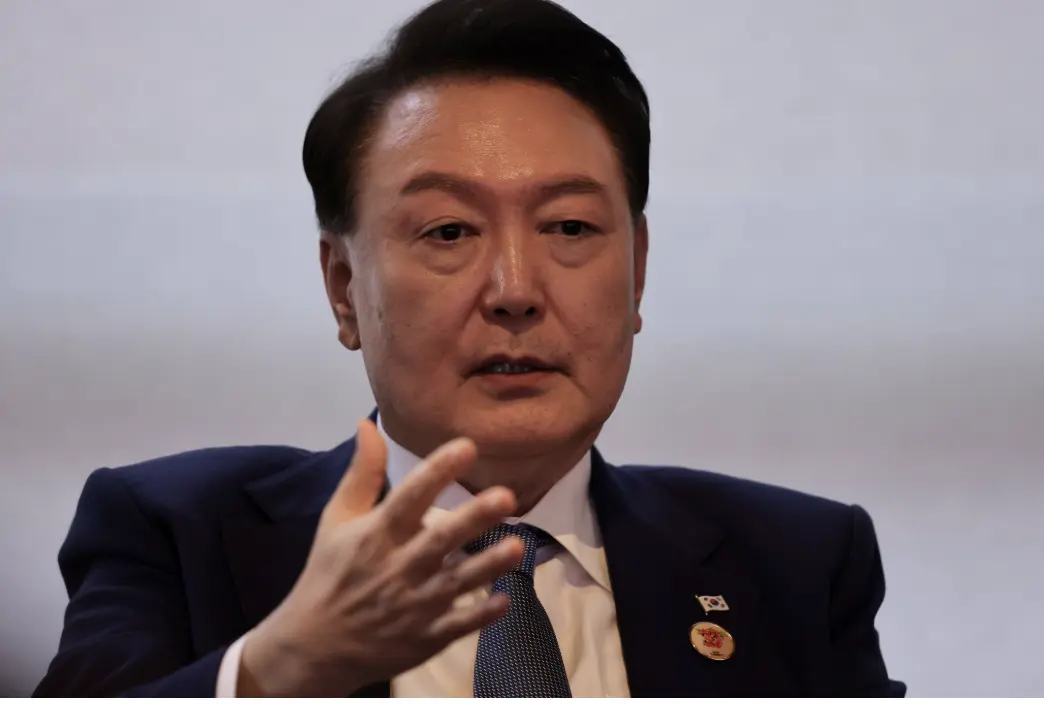South Korean President Yoon Suk Yeol Impeached Amid Massive Political Turmoil
South Korea’s National Assembly voted on Saturday to impeach President Yoon Suk Yeol following his controversial attempt to impose martial law last week.

President Yun Suk Yeol impeached
South Korea’s National Assembly voted on Saturday to impeach President Yoon Suk Yeol following his controversial attempt to impose martial law last week. The dramatic decision comes amid a period of intense political instability and widespread public discontent.
In the impeachment vote, 204 of the 300 lawmakers supported the motion on charges of insurrection, surpassing the two-thirds majority required for approval. Eight votes were nullified, 85 lawmakers opposed the motion, and three abstained. The allegations against Yoon included inciting riots and issuing threats against the National Assembly and the public, actions deemed an insurrection.
As a result of the impeachment, Yoon’s presidential powers have been suspended. Prime Minister Han Duck-soo has assumed the role of interim president, ensuring the continuity of governance during this critical period. The Constitutional Court now faces the task of reviewing the impeachment motion to determine whether Yoon’s removal will be upheld. The court has up to 180 days to reach a verdict.
Should the court uphold the impeachment, Yoon will become only the second president in South Korean history to be successfully removed from office. This decision would trigger a new presidential election within 60 days, marking a significant turning point in South Korea’s political landscape.
The impeachment follows a steep decline in Yoon’s approval ratings, which have hit an unprecedented low of 11%. His presidency has faced growing criticism, culminating in large-scale protests across Seoul. Demonstrators have called for Yoon’s resignation and arrest, reflecting widespread dissatisfaction with his leadership.
To address the escalating tensions, the Seoul metropolitan government has deployed over 1,000 safety personnel to manage protests and maintain order in the capital. The demonstrations underscore the deep divisions in the country’s political and social fabric.
The catalyst for Yoon’s impeachment was his December 3 attempt to impose martial law, a move that drew sharp condemnation from opposition parties and political experts. Yoon defended his decision by citing the need to eliminate domestic political support for North Korea, framing it as a national security imperative.
However, critics accused him of overreach and rebellion, arguing that the martial law decree undermined democratic norms and destabilized the nation. The decision not only alienated lawmakers but also intensified public outrage, ultimately leading to the impeachment motion.
The fallout from Yoon’s actions has been far-reaching. The former defense minister has been arrested, and several senior military officials are under investigation for their involvement in the martial law decision. These developments have raised concerns about the country’s ability to address security challenges, particularly in light of heightened tensions with North Korea.
South Korea’s political crisis comes at a precarious time for the nation, with growing external security threats and domestic unrest testing its resilience. The suspension of Yoon’s powers has provided a temporary solution, but long-term stability will depend on the Constitutional Court’s decision and the outcome of potential new elections.
Yoon’s impeachment marks a pivotal moment in South Korea’s modern history, highlighting the fragility of democratic institutions in the face of political overreach. The nation now stands at a crossroads, with its leaders and citizens grappling with how to move forward from this period of political upheaval.
As the Constitutional Court deliberates, the immediate focus will remain on ensuring order and addressing the pressing concerns of governance and national security. The outcome of this crisis will not only shape South Korea’s political trajectory but also serve as a critical lesson on the importance of safeguarding democratic values in turbulent times.
